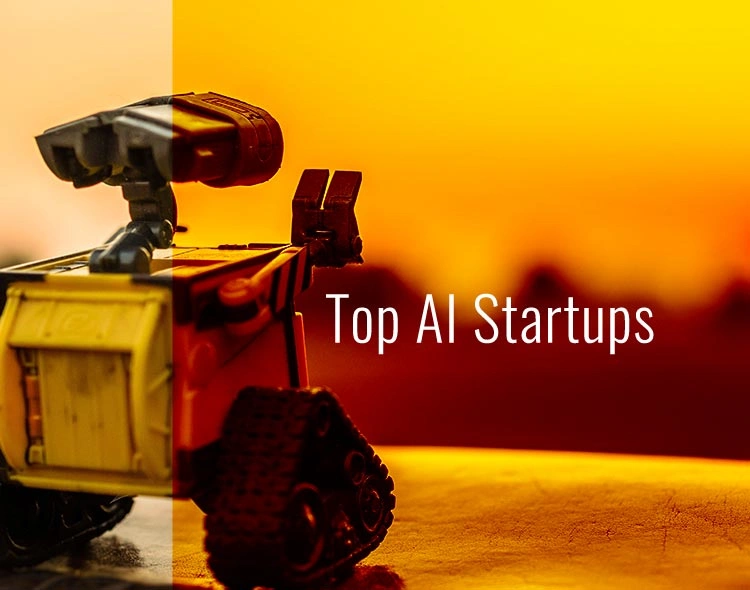Artificial Intelligence (AI) has emerged as one of the most transformative technologies of the 21st century, revolutionizing industries and driving innovation at an unprecedented pace. As the demand for AI solutions continues to rise, so does the number of startups entering the market. In this comprehensive guide, we'll delve into the world of AI startups, highlighting the top players, their impact on various industries, and the challenges they face.
AI Startups

What are AI startups?
AI startups are entrepreneurial ventures that leverage artificial intelligence technologies to develop innovative solutions to complex problems. These startups typically focus on areas such as machine learning, natural language processing, computer vision, and robotics.
Importance of AI startups in today's economy
AI startups play a crucial role in driving economic growth and technological advancement. They are at the forefront of innovation, disrupting traditional industries and creating new opportunities for businesses and consumers alike.
Criteria for Top AI Startups

In determining the top AI startups, several key criteria must be considered:
Innovation
Top AI startups demonstrate a high level of innovation, developing novel solutions that address unmet needs or improve upon existing products and services.
Market Potential
The market potential of an AI startup is another important factor. Successful startups have a clear understanding of their target market and a scalable business model that allows for growth and expansion.
Team Expertise
The expertise of the founding team is critical to the success of an AI startup. Top startups are led by experienced professionals with a deep understanding of artificial intelligence and its applications.
Funding
Access to funding is essential for AI startups to develop and commercialize their products. The top startups have secured significant investment from venture capitalists, angel investors, and other sources.
Top AI Startups in Various Industries
AI technology is being applied across a wide range of industries, transforming the way businesses operate and delivering tangible benefits to consumers. Some of the top AI startups in various industries include:
Healthcare
- Example AI Startup: MediAI
- Description: Using machine learning algorithms to analyze medical images and assist healthcare professionals in diagnosing diseases.
Finance
- Example AI Startup: FinTech Analytics
- Description: Providing AI-powered analytics solutions for financial institutions to detect fraud, optimize investments, and improve customer experience.
E-commerce
- Example AI Startup: ShopGenius
- Description: Developing AI-driven recommendation engines to personalize the online shopping experience and increase sales conversion rates.
Automotive
- Example AI Startup: AutoAI
- Description: Building autonomous driving systems and predictive maintenance solutions to enhance vehicle safety and performance.
Marketing
- Example AI Startup: MarketMinds
- Description: Leveraging AI algorithms to analyze consumer behavior, predict trends, and optimize marketing campaigns for maximum impact.
Case Studies of Successful AI Startups
To illustrate the impact of AI startups, let's examine some notable success stories:
-
Case Study: DeepMind
- Description: Acquired by Google in 2014, DeepMind is known for its breakthroughs in artificial intelligence, including AlphaGo, a program that defeated world champion Go players.
-
Case Study: UiPath
- Description: Founded in 2005, UiPath has emerged as a leading provider of robotic process automation (RPA) software, helping organizations automate repetitive tasks and streamline business processes.
Challenges Faced by AI Startups

Despite their potential, AI startups face several challenges that can hinder their growth and success:
Regulatory issues
- Challenge: Compliance with data privacy regulations and industry standards can be complex and costly for AI startups, particularly in highly regulated sectors such as healthcare and finance.
Ethical concerns
- Challenge: The use of AI technologies raises ethical concerns related to bias, transparency, and accountability, which can undermine trust and adoption.
Talent acquisition
- Challenge: Recruiting and retaining top talent in artificial intelligence and related fields is highly competitive, particularly as demand for skilled professionals continues to rise.
Future Outlook for AI Startups

Looking ahead, the future appears bright for AI startups, with emerging trends and opportunities for growth:
Emerging trends
- Trend: Continued advancements in AI technologies, including deep learning, reinforcement learning, and quantum computing, are opening up new possibilities for innovation and disruption.
Opportunities for growth
- Opportunity: As businesses across industries increasingly embrace AI to drive efficiency and competitiveness, there is a growing demand for AI solutions and services, creating vast opportunities for startups to thrive.
Conclusion
In conclusion, AI startups are at the forefront of innovation, driving economic growth and technological advancement across industries. By harnessing the power of artificial intelligence, these startups are transforming the way we live, work, and interact with the world around us. As we look to the future, the potential of AI startups to create positive change and solve some of society's most pressing challenges is truly limitless.
FAQs
Q. What sets top AI startups apart from their competitors?
Ans: Top AI startups differentiate themselves through their innovative solutions, market potential, team expertise, and ability to secure funding.
Q. What are some common applications of AI technology in healthcare?
Ans: AI technology is used in healthcare for tasks such as medical imaging analysis, drug discovery, personalized medicine, and patient monitoring.
Q. How do AI startups address ethical concerns related to bias and transparency?
Ans: AI startups implement measures such as bias detection algorithms, explainable AI techniques, and ethical guidelines to mitigate ethical concerns and ensure transparency and fairness in their AI systems.
Q. What role does government regulation play in the development of AI startups?
Ans: Government regulation can have a significant impact on AI startups, influencing factors such as data privacy, intellectual property rights, and industry standards.
Q. What opportunities does the future hold for AI startups?
Ans: The future holds vast opportunities for AI startups, with emerging trends such as deep learning, autonomous systems, and AI-powered healthcare driving innovation and growth.









